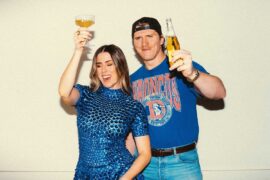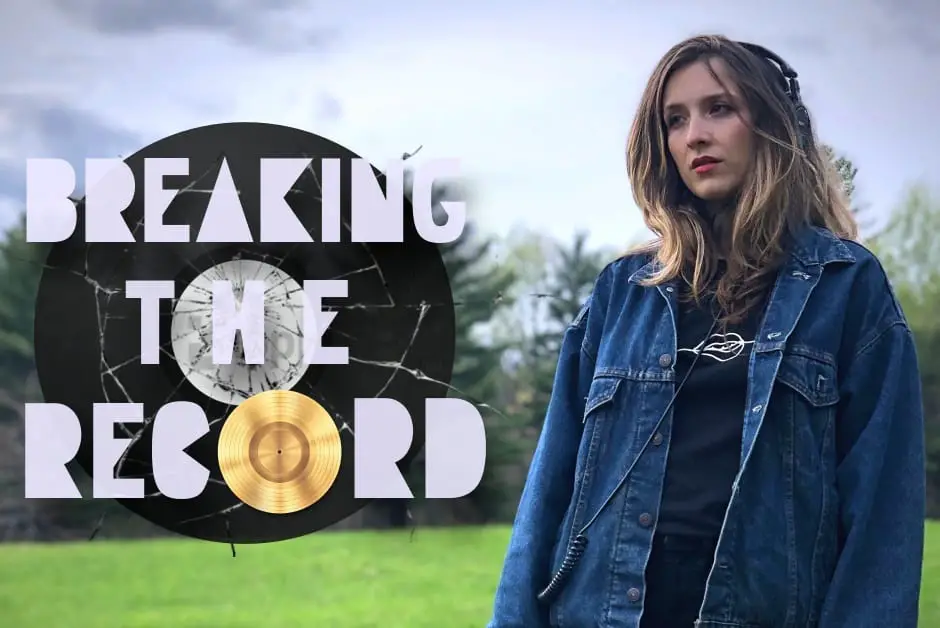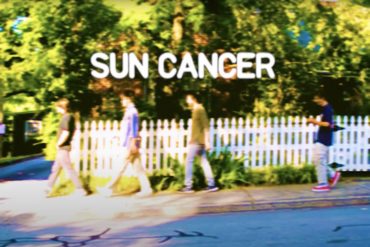Wilderado’s Max Rainer takes us track-by-track through the intentionality, heartfelt passion, and raw emotions behind the band’s spirited, soul-searching sophomore album ‘Talker,’ a beautifully warm, tender, and achingly vulnerable folk rock reverie that finds the Tulsa, Oklahoma trio living in the moment and taking in everything life has to offer them.
Stream: “In Between” – Wilderado
I wrote these words down, then I threw them away. Why would I keep you here if I ain’t got nothing to say?
For Wilderado’s Max Rainer, being a ‘talker’ is not necessarily a ‘good’ thing.
“We all know that person in the room who just won’t shut the hell up – they do the opposite of the rule, which is they talk first and listen second,” he says. “I’ve always wanted to be someone who listens first.”
The ironic twist for Rainer, of course, is that being the lead singer and songwriter of a non-instrumental band inherently means being the talker. His songs call for vocal lines, and those vocals require lyrics – and so for Rainer, that meant he had to figure out what he actually wanted to express through Wilderado’s music.
“It always comes back to this point where I have to say something, and I was very against the idea of making claims and preaching,” he admits. “I didn’t know what to say, to be honest, because every time I started to write lyrics, I kind of felt like I was just talking. It felt bad, it felt empty, and it felt weak, and I eventually came to this point where I realized, what I haven’t yet done with a high degree in my songwriting, is just be more intentional and strictly observational in a way that’s free of needing to feel like I have to always be the way that I am right now. I wanted to write something that just felt and feels current to me, while also understanding that we all change. You can have a thought now, and it doesn’t define you; it’s just the way that you’re feeling, and you don’t have to be a prisoner to that! Get it out. Have that thought, observe it, and then be willing to either stay or move on.”
“I liked this juxtaposed idea of having to talk on a record, while at the same time not wanting to be this person who’s just saying things. I want to say things with intention, and if I have to be a talker, I want to be intentional about it!”
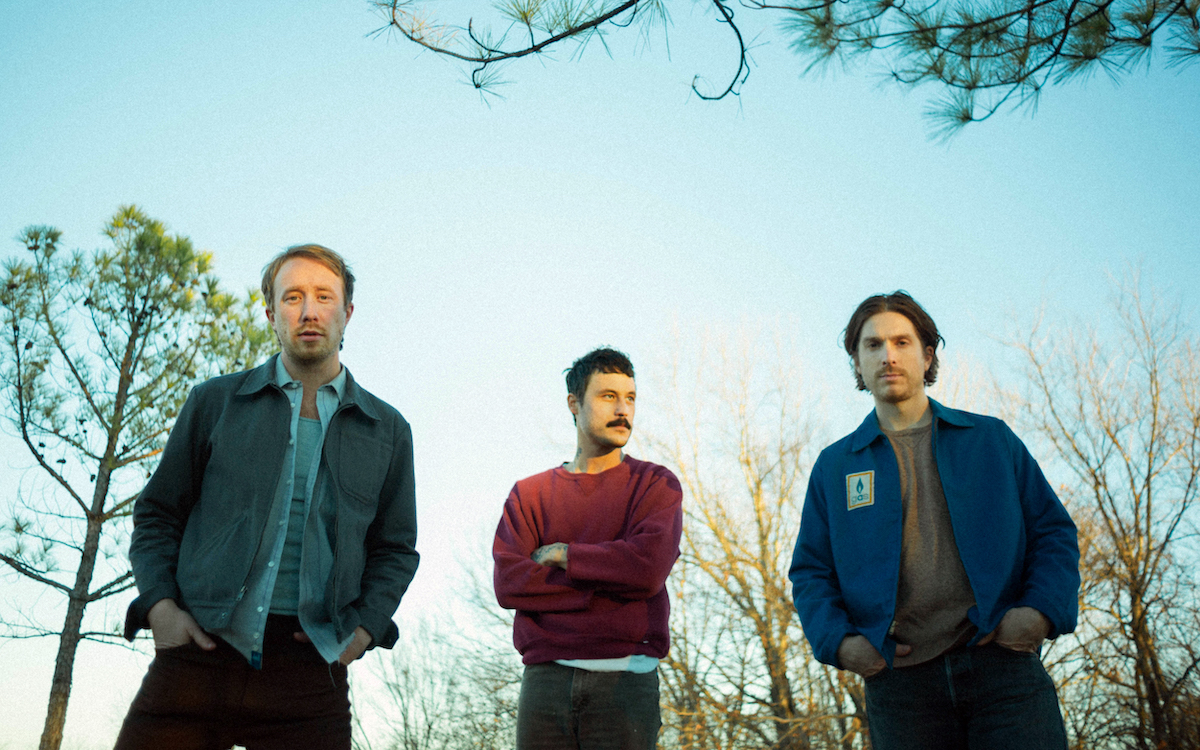
In some ways, Wilderado’s sophomore album is a reclamation of the term ‘talker’ – but perhaps it’s best understood as an evolution: An embrace of what it can mean when you put genuine, authentic thoughts and feelings behind your words; when you listen first, and then speak second – which is exactly what Rainer and his bandmates did with these songs. A spirited, soul-searching record built out of real passion and raw emotions, Wilderado’s Talker is a beautifully warm, tender, and achingly vulnerable folk rock reverie that finds the Tulsa, Oklahoma band living in the moment and taking in everything life has to offer them. Rainer’s hard-won lyrics feel earnest and exposed; he sings about everything from cherished, intimate memories with his wife and his kids, to unresolved questions about God, and candid, cathartic ruminations on his own purpose and place in the world.
While yes, he is the one doing the talking, these introspective songs are the direct result of keeping an open mind, an open ear, and an open heart – and maybe that’s the best kind of talker you can be.
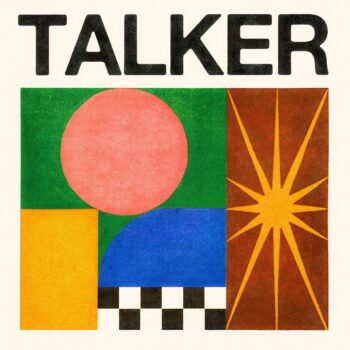
Palomino runnin’ where the dеsert meets the sun
Therе’s a million ways to go from here
A million ways and one
Up to Oklahoma where my baby sits with me
How much longer will she stick around?
I guess we wait and see
It’s somewhere between here and now
Somewhere in between right here,
right here and now
– “In Between,” Wilderado
Released September 20, 2024 via Bright Antenna Records, Talker is a triumph of the soul: A labor of love arriving three long years after Wilderado’s self-titled debut album, itself home to such great tracks like “Take Some Time” and “Head Right,” as well as the radio smash hit, “Surefire.”
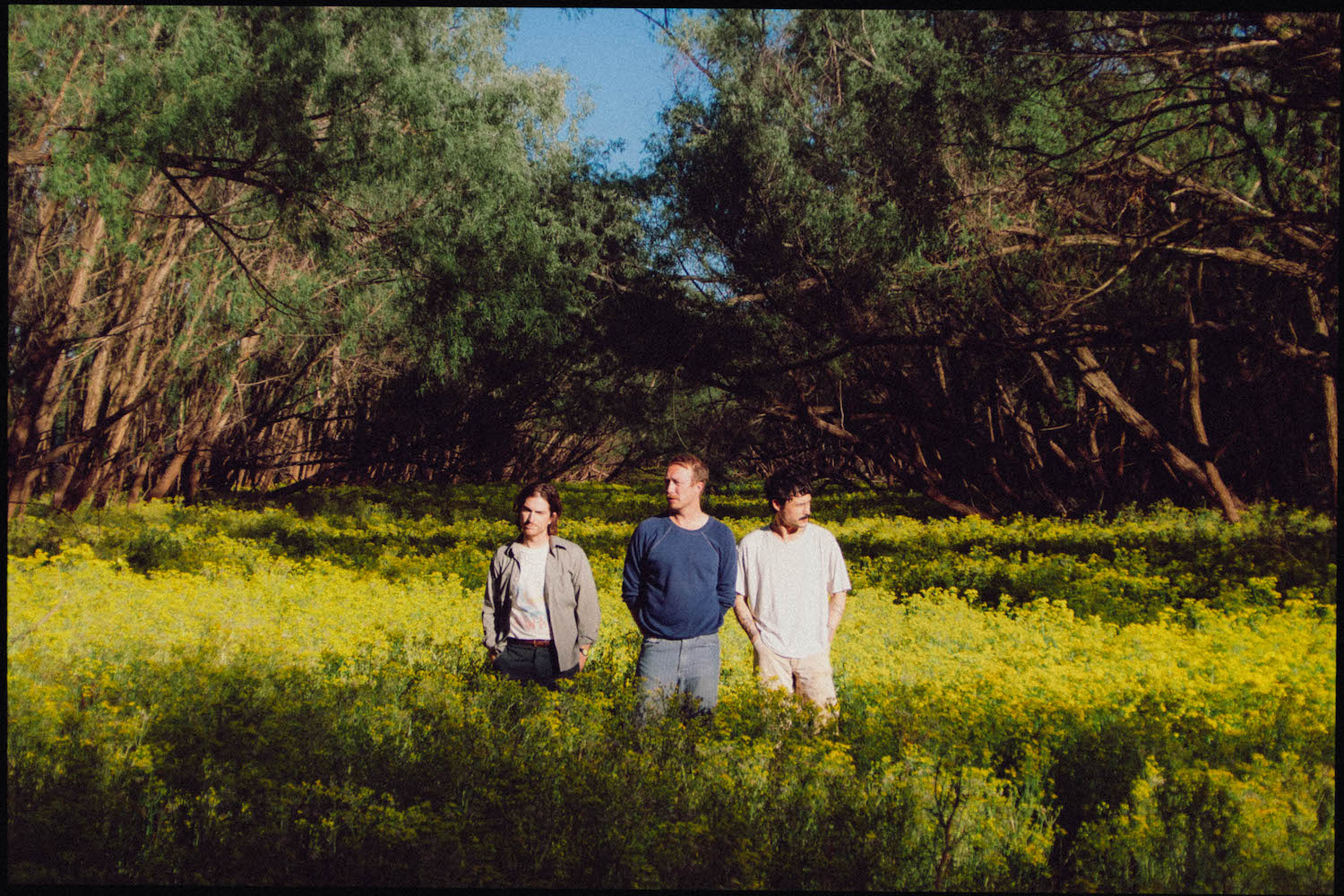
“What I keep coming back to is that the beginning of this record was us needing to write a new batch of music that made us excited to keep playing in the band,” Max Rainer – who leads Wilderado, together with guitarist Tyler Wimpee and drummer Justin Kila – tells Atwood Magazine. “We came off of 265 days on the road in 2022 and were a bit more broken and fragile than any of us really understood, and we started this record with the question, ‘Do we want to do this anymore?’ It wasn’t in any sort of threatening or scary sort of way, but three friends being honest about this being a very hard thing to do! There’s very little money in this, and the sacrifice is unlike we ever understood or dreamed. So, do we want to keep doing this? And the answer that always happened was, ‘Yes, if we make new music we’re excited about.’ It was a fun way to view this whole entire project, because it just started with, ‘If we’re going to make a new record, it has to be this thing we needed to reinvigorate us.’”
“It sounds like we put a lot of pressure on it, but really that’s what made us love doing it in the first place, which was just not really caring about what anybody thought,” he continues. “When we first started the band, it wasn’t for any other reason that we just had songs, and we liked each other, and it was fun to dream and wonder what the songs could be. Usually, new music from Wilderado comes from management or our label saying, ‘We need it!’ and we’ll go record them and turn them into either an EP or a record. This time, we wanted to make a record – we wanted to actually go into it with some intention. It was really a first for us, if I’m being honest; our main intention was to go back to the beginning and write in a way that was carefree, and not worried about what people think or how they’re going to receive the things that I say.”
“We had very specific desires and intentions,” he adds, “for example, I didn’t want to make another record that was forcing me to send a vocal to the top of my lungs. I wanted to write a record where we could go and sing it anywhere, as opposed to certain songs on the Wilderado LP, where I have to go to the top of my range and it’s incredibly exhausting that way. I wanted to make a record that felt like the vocal was close to your ear. We wanted to get rid of cymbals, get rid of some ‘bashiness’ but still have the drums be driving and groovy, and we wanted to make a record that wasn’t situational: I wanted to somehow approach these songs where they didn’t need to be blaring in the car to make sense. I wanted songs to make sense cooking dinner, and all these ways that we ourselves were currently enjoying music. So we went in with some parameters, and it made it fun and challenging… We were just incredibly specific, and I’m not sure that’s how I want to work ever again, but it was a really fun way to work, and it was a fun way to approach this project, and I think it turned out the best that it could.”
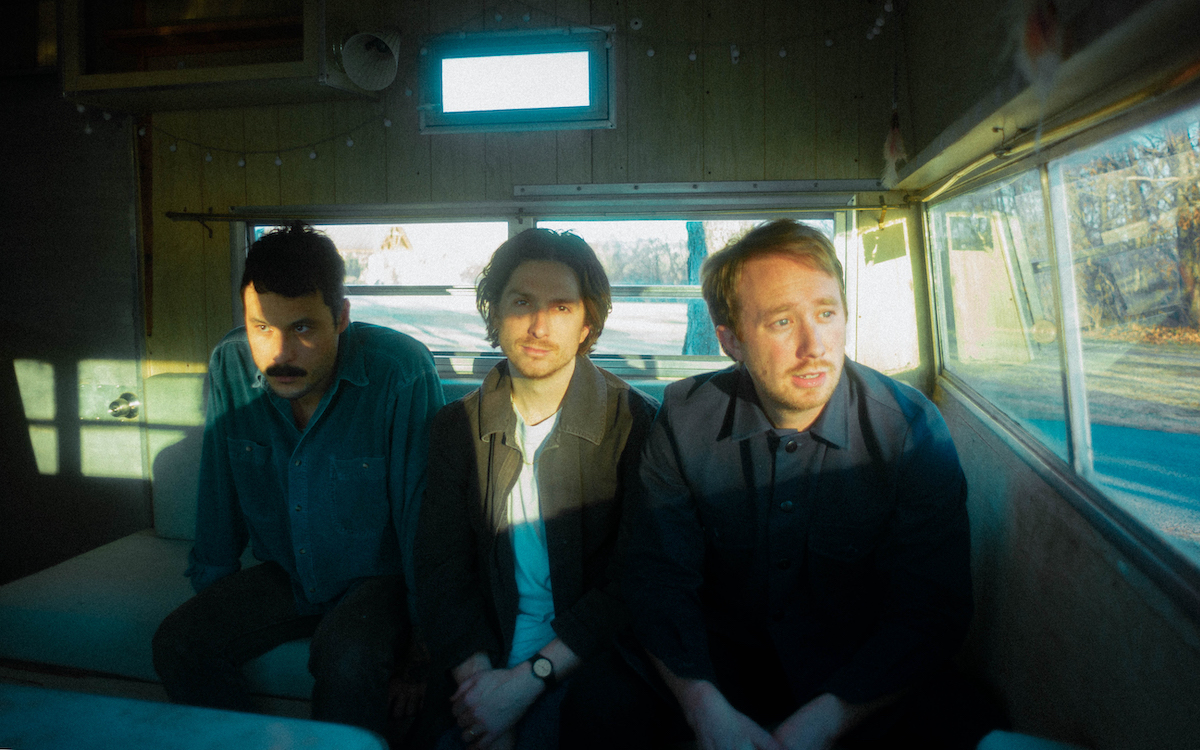
To Rainer, this record is all about him and his bandmates “just being ourselves” – it’s real, raw, and true to who they are, both as three individuals and as a collective unit.
“I observe this as an evolution of the band,” he smiles. “I feel like I had to get better as a musician, get better as a writer, and get better as a person to finish this record. That’s literally all I can hope for in my career. A huge thing for me was I could not stomach the idea of putting out a B-side to the Wilderado LP. it was imperative that we make something else, something that evolved.”
“It feels more mature, and I think it feels more mature to me because I know of all of the moments where I had to be more mature in my decision-making. It’s interesting to try and point out evolution, because it’s a bit subjective when it comes to music, but it’s that the intentionality with every decision… everything was approached with intentionality, and I’m not sure we’ve done that before across the board.”
Part of making Wilderado’s second album meant also leaving the first one in the past, and not letting the pressure of delivering a “Surefire” follow-up invade their creative space.
“It took a high degree of just not giving a shit!” Rainer smiles. “You have to just fully endorse your idea and not endorse what someone may want to hear or expect. I will say though that I’m pretty convinced half the people who know ‘Surefire’ don’t know our band. I think there’s a lot of grocery store shoppers or listeners that know that tune… but I really am convinced that more people know that song than know who sings it, or who wrote it, so I didn’t really feel any imprisonment for it.”
“We’re in the business of not trying to please people; we’re in the business of just trying to write well. But I would be lying if I said that’s not always knocking at the door; this is an age and industry of comparison, so you’re wanting to do a good job of not listening to the outside influences that are constantly around, but all that takes is good council, good friendships, and a good listener. I never really had an issue with it.”
Father, Son, and the Holy Ghost
Who’s the one that we need the most
As easy come, easy go
I get older and then I die
I should know when to say goodbye
And shake the hand, meet the eye
But if it goes well
You find a lover, find a hotel
You try another, try a carousel
Later on, in the corners of your own hell
You hide away and get by
That said, there are clear musical and lyrical throughlines between Wilderado and Talker that suggest the Oklahoma band are carving out an identifiably unique sound and identity.
“It’s a big goal of mine to leave a sound in the world that wasn’t there before,” Rainer says. “I’m not sure it can be quantified; I’m convinced that the only way to actually do that is to put such a high degree of intention behind just being yourself. Going back to ‘Surefire,’ we were at a huge risk of writing something that was a hit or a streamer. I think with your sophomore record, you’re at such a high degree of risk, because if you try to only further your success, you’re going to disrespect and lose all the people who supported you being yourself all along the while. We’re on this long road of people supporting who we are, and I think if you diverge from that for the sake of success, you just kind of throw all of this to the wind – and we’ve all seen artists who do it, and it’s so disappointing and sad.”
“When we turned in this record to Bright Antenna, Braden at the label said, ‘I really feel like this record is finalizing and establishing Wilderado having a sound.’ And I think I can fall into that as a hug. I’ve put so much work into that being that way, but the only way it gets to be that way is if you’re relentless about being yourself, which is hard to do, because you have to accept yourself, which can be gnarly – and you’re not always happy with the way that is. I think that’s what I mean where I say a lot of the evolution in this record came from just me as a person – and I’m not glorifying that; I’m just saying that in a matter-of-fact way.”
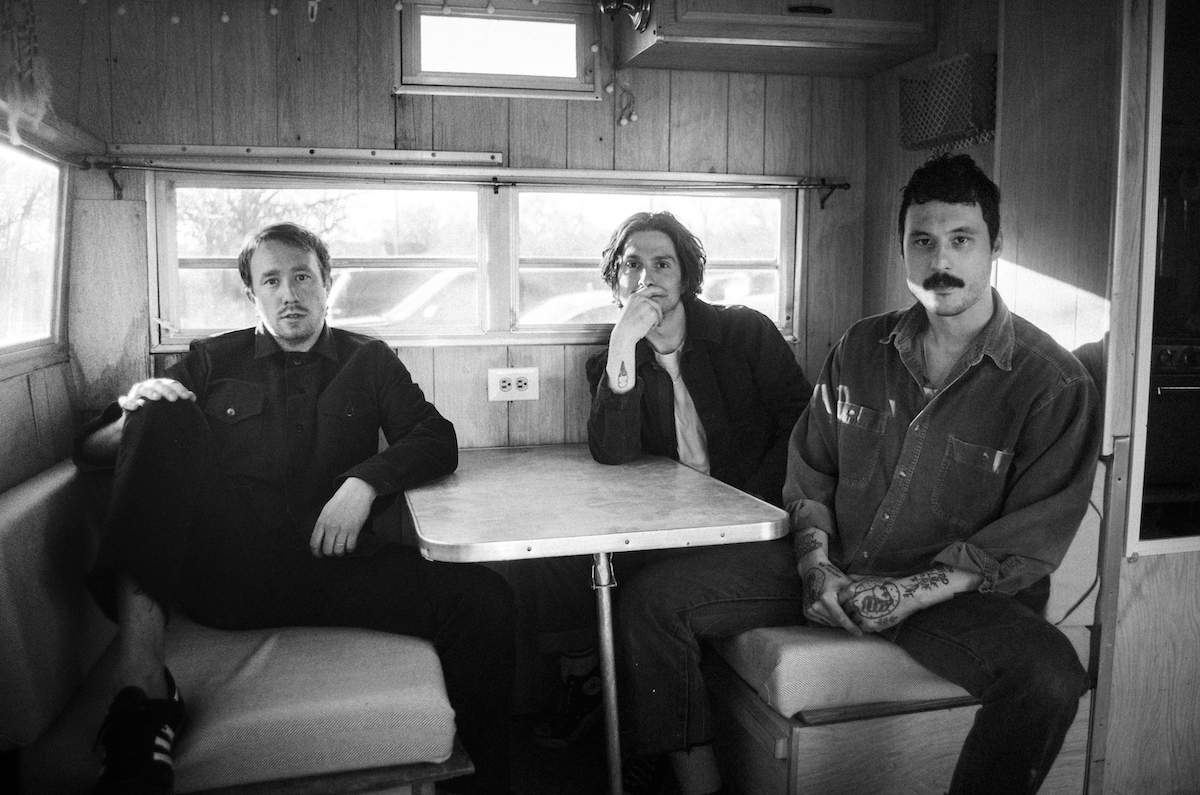
Highlights abound on the twelve-track journey from the album’s heart-on-sleeve opener “Talker” to its sweet and mindful closer, “What Were You Waiting For.” Lead single “In Between,” which received two remakes over the past year – one featuring fellow Tulsa native Ken Pomeroy, and the other featuring The National’s Matt Berninger – remains an unmistakable standout. A dreamy indie rock song, it’s at once a reverie, a reckoning, and a soul-stirring surrender that succeeds at capturing Wilderado’s Western warmth and wonder.
“In Between” is joined by the confessional indie folk ballad “Sometimes,” the charmingly jangly and emotionally charged “Higher Than Most,” and the dynamic, soul-stirring, and spirited “Bad Luck” (amongst many others).
“I look at it all as a story, almost,” Rainer reflects. “I think ‘Bad Luck’ for my ears is the coolest song we’ve ever made. When I hear that song, it just puts me in such a head-nod. ‘Coming to Town’ is one of my all-time favorite tunes of ours; I love how easily I can remember the origin of that song – I’m a clinical voice memo-er, and ‘Coming to Town’ began back when we were living in LA, and I had just had my daughter and I was stuck at the house, sitting in my bad, and for some reason I saw something about Motley Crue and thought, that is the sickest band name! I didn’t know what motley meant, so I had to look it up, and when I did, for some reason that whole entire tune just came out. There’s that whole line in there, ‘saving, what a motley sin.’”
Slow down
Slow your feet down
Dry your heart out
I’m coming to town
Where they know me
Where they see right through me
Saving, what a motley sin
That I’m chasing
To stay in my own skin, like I do…
Like I do when I’m on my own
Like I do when I’m all alone
He continues, “I love ‘Tomorrow’ so, so much. That song was a really interesting ordeal for me because Tyler, our guitarist, had always had that riff, and every once in a while we’ll run into a riff and I think the biggest challenge is not stepping away from this – and so it was a really fun challenge to not only figure out how do we run the whole tune along the back of this guitar line, and then at the same time, how am I going to approach this vocal without totally disappointing the mood that we’re in? and so that was such a fun project – going back to the hard work thing, I probably wrote eight versions of that song, spending so much time on that lyric because I slowly started to understand what I wanted to say. it’s so easy for me to feel proud of how much time I spent on it.”
“I love ‘What Were You Waiting For’ because it’s such a snapshot in my memory. I’ve got two daughters, and Milly’s got her own tune that was in our singles EP, and I’ve never been able to force a song from our daughter Milo, but her name is such a song in and of itself, endive always dreamed of a moment where it falls into a lyric… the whole tune is about a little trip me, my wife, and my two kids took to England. when you long to be with your kids, there’s this moment that’s so strange when you’re back with them and you find yourself looking for a break, and you think, what is wrong with me? I think that phrase, ‘what were you waiting for’ is really impactful to me, because there’s so many moments where you physically have to force yourself as a human being t realize, this, right here and now, is exactly what you were wanting for. You’ve got it; are you going to be perpetually waiting for something, or are you going to learn to appreciate what you’ve got? So I listen to this song and I see Milo up on my shoulders walking around England.”
What was I waiting for
Was it this
Like the rain that pours
Take the stairs down to the sea
You let your hair down just for me, darlin’
I followed Milo round through the mist
Another English town
And a coffee at the cafe
Stopped in Whitby, Robin Hood’s Bay
Do you love me?
Do you want me around?
Can you hold both my feet to the ground?
While I’m floating down the freeway
Slow motion’s never easy
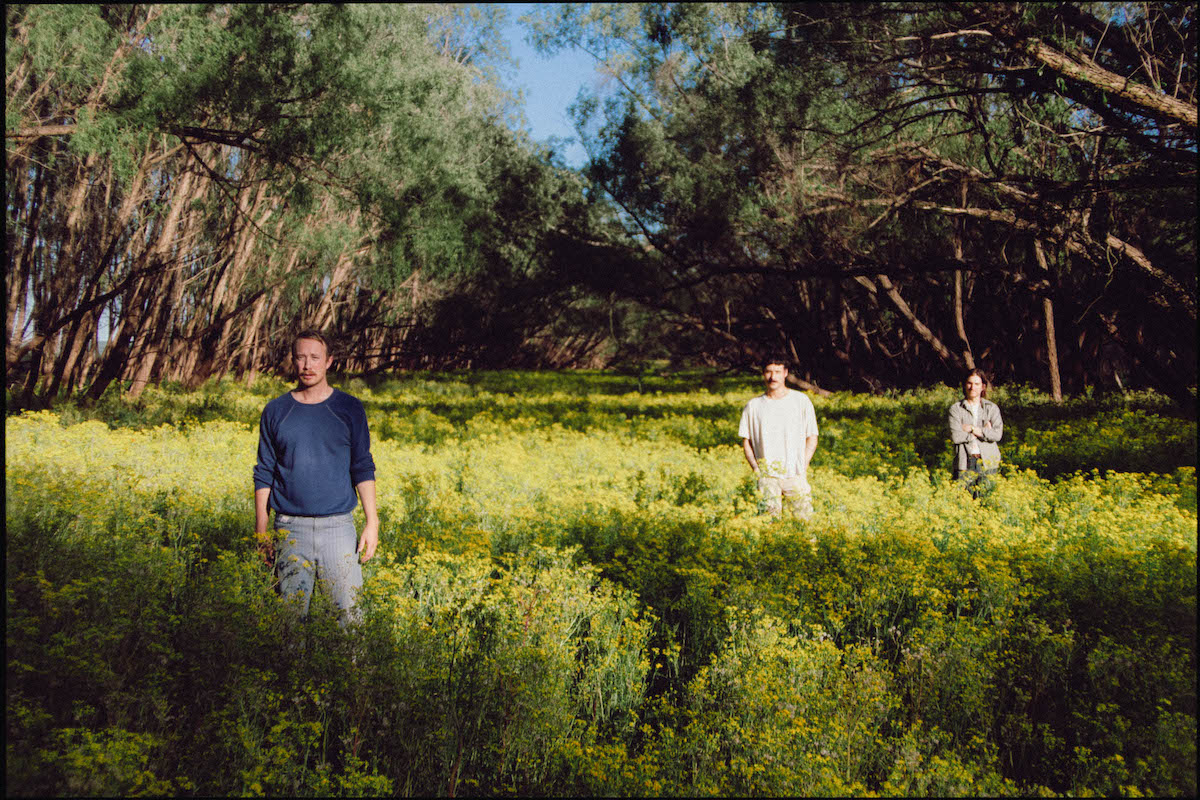
He may still not love being a ‘talker,’ but Max Rainer can confidently stand behind every word on Wilderado’s second record.
“It goes from my kids to God, and it’s everything in-between,” he says with a glimmer in his eyes. “That was my job that I gave myself: You’ve got to write more songs, so anything goes! We’re going to start with, ‘What are you thinking of today?’ It’s funny, I’m not sure I’ve fully figured out how to articulate this, but I’m kind of a believer that you are your first action and your second thought. Someone said that to me one time, and I’ve really held onto it because I think we as people are so judgmental on ourselves based on our first thoughts. Your first thought is an animal; you are animalistic thing that is having a thought. Your second thought should observe and apply all of your tools and your understanding to whether or not you should have that first thought, and then all of those should impact your action. We should be judged for our first actions; I’m not sure we should be judged for our first thoughts, but I do think we should be judged for our second thoughts. I think this was all just a process of mulling that over.”
Going to god and religion, my dad’s dad always had this line, ‘one of the most important things you can do as a person is understanding your idea of god.’ … his thought was, YOUR idea of god, and what I love about that is, what that means to me, is, you shouldn’t shelve it! You don’t have to come to a conclusion… just don’t shelve it! continue to think about it, allow it to be an evolving thing. so I guess that’s just what I mean;
“I wanted myself to just be free to go anywhere, because I don’t feel like we have to be defined by all of this. I don’t have to be defined by this record; I’m allowed to have thoughts in 2025 that I might not have in 2026. What I just wanted to do is be current and be who I was in the process of writing, because that to me felt like it was the most honest thing to do.”
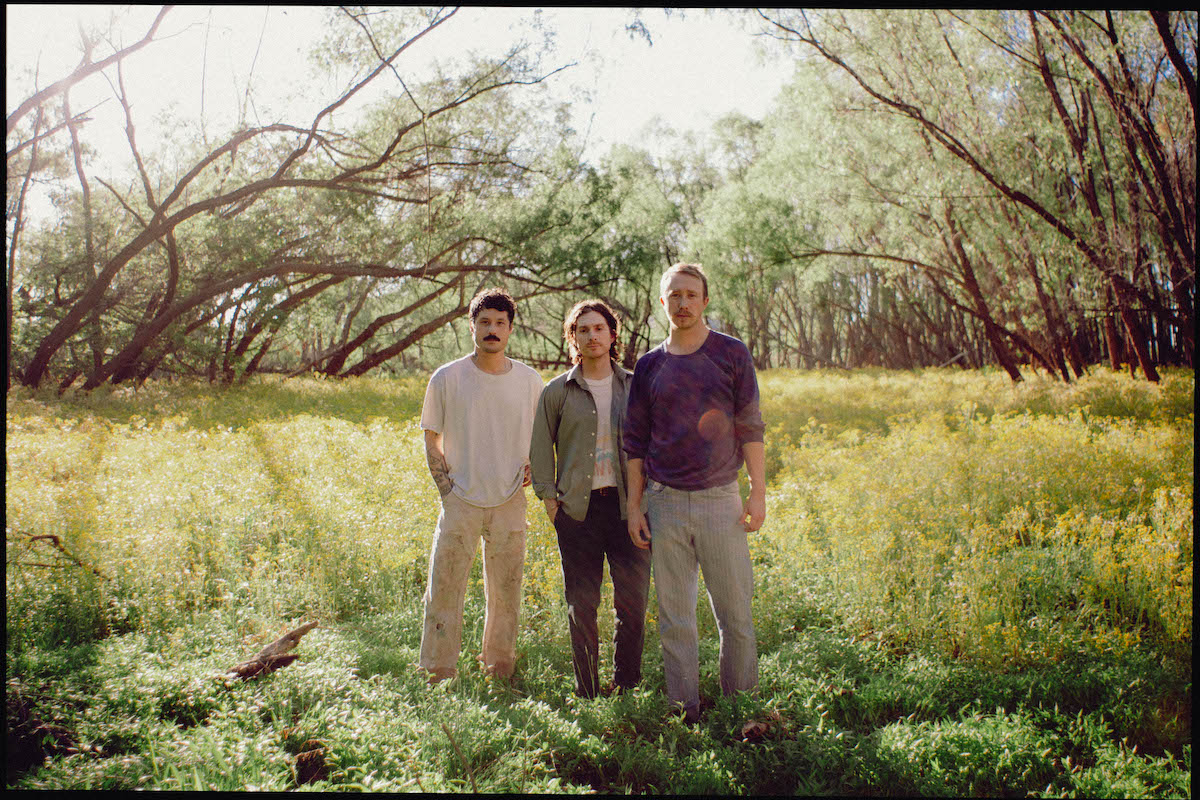
You can write in a way that you hope to be, or you can write in a way that you are. I’m not sure which of this is right, but I was just writing the way that I currently was.
And what is Talker, at the end of the day, but a record of Wilderado’s life and times;
of being present with yourself and with your loved ones, being intentional and honest, vulnerable, uncompromising, and unapologetic. Wilderado may have named this album Talker, but all Rainer really wanted to do was be a listener – and in point of fact, that’s what these songs are really all about.
I ain’t much of a talker, but I get by
Smoke my way to a better man
I’ll be alright when I get high
Come on over, step on in
I don’t know you, darlin
But I sure could use a steady friend
I wrote these words down
Then I threw them away
Why would I keep you here
If I ain’t got nothing to say
– “Talker,” Wilderado
“I hope something on this record causes somebody to be willing to hear or connect to something that they might need to, in that specific time that they’re listening,” Rainer shares. “As an umbrella statement, I always pray and hope and love the idea of our songs being somewhat of a companion to people who need them.”
“What I take away from it is so cheeseball, but that ‘the point is the process’ – it’s about the journey, not the outcome. I really learned that with this record, and by far my favorite parts of it were the moments when it was still happening. I love it now, and I’m so glad it’s out in the world, but I think what I take away from it is that the process is king, and learning to appreciate the hard work; it’s not the outcome, it’s doing a fantastic job of being holistically involved in the work that you’re doing today. That’s definitely my biggest takeaway.”
Experience the full record via our below stream, and peek inside Wilderado’s Talker with Atwood Magazine as Max Rainer takes us track-by-track through the music and lyrics of their sophomore album!
— —
:: stream/purchase Talker here ::
:: connect with Wilderado here ::
Stream: ‘Talker’ – Wilderado
:: Inside Talker ::

— —
Talker
I felt pressure to say something on this record. To be elegant and evolved. It wasn’t until I accepted the fact that the only thing I’ll ever be is myself that I started writing. I needed to go to the dark pit of comparison and realize I am never going to be the writers I look up to. Sometimes I have something to say, other times I don’t. I wanted to state from the beginning that I’m not here to teach, I just want to observe and to confess and to say how I’m feeling.
Bad Luck
Bad Luck is an observation as a realist. I was set up from a very early age to expect and demand greatness, but never given the tools to understand happiness is acceptance. Beauty is mundane. Its more than likely we will encounter more bad luck than good.
Simple
We had a basic, dumb really, bed of music so we titled it simple before it ever had words. I love when we stumble into a thoughtless song shape because it’s always fun to juxtapose it with a heavy concept. I ended up going on a search for God.
Higher Than Most
This is a classic song about being on the road, coming home from tour, pretending you’re ok, medicating, being deeply in love and learning how important it is to ask for help.
Coming to Town
This is also about going home. Specifically to Tulsa, where I’ve got four siblings and ten nieces and nephews. We all live within 2 miles of each other and there’s no hiding. I’m always waiting to get back there. Im getting older one way or the other, so I’m on the hunt to notice life whether I’m alone or with my people.
In Between
I think this song is mostly about time and how there’s no real way to grasp it. There’s all the bits about horses because I think they’re mystics. My wife grew up on horses, she’s Mexican and I had admittedly just finished McArthy’s novel. I love this song. Easiest tune we’ve ever written from start to finish.
Longstanding Misunderstanding
We wrote this with the lads in Flyte. Another super quick write. Both this and in between were written and recorded in the same day. Well, I’m sorry, different days, but both songs were recorded the moment they were written. I think that’s the closest you can get to the heart of a song. The title is a mouthful, but it’s also the whole explanation.
Sometimes
The first line of this song jumped out of me and I spent the next year trying to figure out how not to say it. I was afraid of admitting that. I finally came to the conclusion that it just needs to be said. It’s not a song about getting high. It’s a song about running away from the people we love because we feel like it’s a safe thing to do.
Tomorrow
I kept finding myself wanting to explore what I think about God in this music. I grew up in evangelical churches surrounded by intense spirituality. We were exposed to a lot of stuff that scared me in a way i hadn’t realized until unpacking it while writing this record. I’m not sure how I feel about it now. I guess that’s what I mean when discussing talker, I don’t feel like I need have this definitive conclusion. I do feel like I need to explore it. I saw things as a little boy that I can’t forget – I felt it too! I think that’s what I meant by “I’m stuck in the afternoon” – I don’t know if I’ll ever get closure on it.
After all
This song is a bit dark. It was kind of the peak of me spinning out on not being able to write. Drinking too much. I was feeling like everything was crashing in on me, always finding myself in the next day before i was ready to. Not sure who reads this, but, I was on the john and the whole tune popped in my head. I mumbled the entire song in my voice memos while in the bathroom then ran to the studio and made the demo.
Waiting on You
I’m away from my partner a lot. You know how it is – you just wanna get back. Always dreaming of it. The song feels like that, too. We made several versions of this song, actually. The version we settled on had the most longing in it. I think the whole song is best described in the bridge.
What Were You Waiting For
I look back over this record, my life, today, right now and notice all this waiting. Just constantly waiting – and for what? I’m always longing for something, practicing how to be somewhere else. At some point you get too good at it, you get where you were hoping to be and have no clue how to even know it. Put my 3 year old on my shoulders and let me wander around Robin Hood’s Bay again. I hope I held enough of that while it was happening.
— —
:: stream/purchase Talker here ::
:: connect with Wilderado here ::
— — — —

Connect to Wilderado on
Facebook, Twitter, TikTok, Instagram
Discover new music on Atwood Magazine
© Cassidy Mandel
Talker
an album by Wilderado

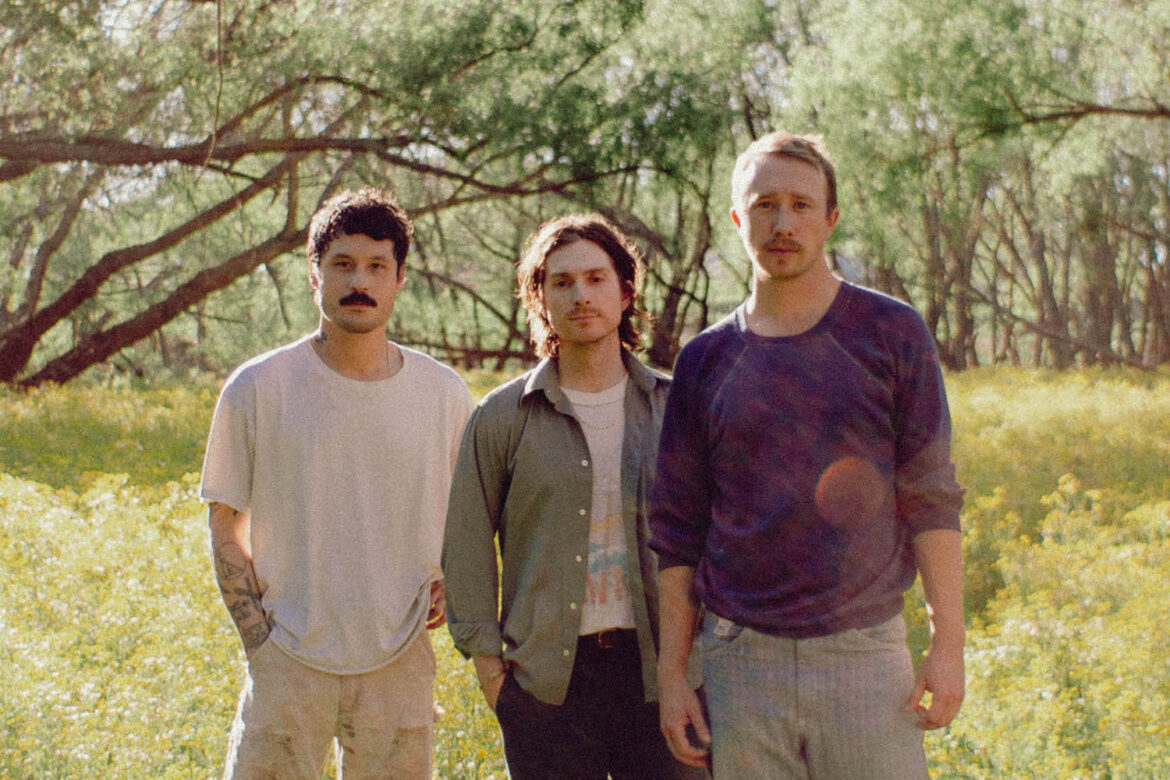
 © Cassidy Mandel
© Cassidy Mandel
